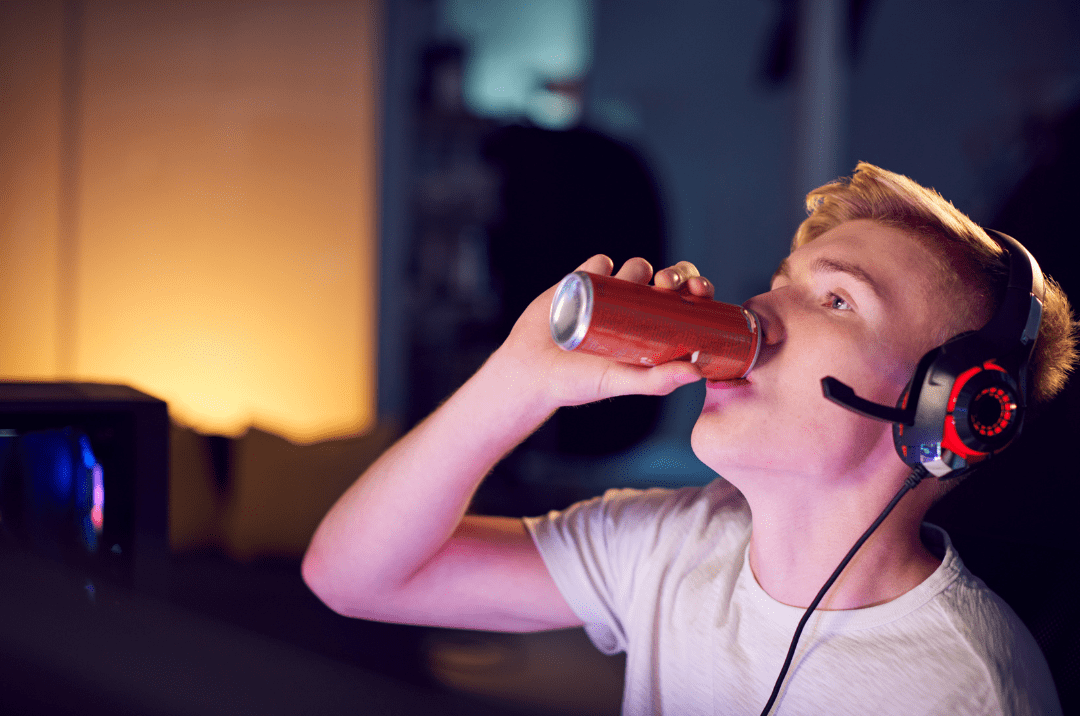Are There Healthy Energy Drinks? Understanding the Toxicity Risk to Youths

Is there such a thing as healthy energy drinks, or should you be worried about the toxicity of them? Energy drinks have become an increasingly popular drink of choice for school-aged children in recent years. Cases reported to U.S. poison centers for energy drink exposures have increased nearly 20% in children ages 6 – 19 between 2019 and 2023. These drinks serve as a quick fix for fatigue, however, some drinks contain a combination of energy-boosting ingredients that can harm youths. Understanding the toxic effects of energy drinks and how to prevent poisoning in youths can lead to healthier choices.
What Is an Energy Drink and Why are they Popular??
Energy drinks are defined as carbonated or noncarbonated beverages that primarily contain the stimulant caffeine. Some energy drink ingredients will list other plant sources of caffeine including: green tea extract, yerba mate, and guarana.
Energy drinks have gained immense popularity among all age groups but particularly with teenagers due to aggressive marketing tactics in the age of social media influencers and their association with improved performance and concentration. Teenagers have busy lives and are often juggling multiple priorities with school, work, extracurricular activities, as well as their personal and social lives. Since these drinks often boast high caffeine content, they appeal to teenagers because of their ability to provide a quick burst of energy and increased alertness to help them get through their day.
Toxic Effects of Energy Drinks on Youth
While energy drinks might seem harmless especially when labeled as healthy energy drinks, their regular or excessive consumption can result in severe health consequences for youth. Some of the toxic effects include:
- Sleep disturbances and insomnia
- Increased heart rate and blood pressure
- Tremors
- Dehydration
- Nervousness, anxiety, and irritability
- Nausea, vomiting, and diarrhea
- Severe symptoms of toxicity can cause irregular heart rhythm, difficulty breathing, and seizures. These symptoms require immediate medical attention.
Prevention and Education
It is important to spread awareness among teenagers, parents, and educators about the potential dangers of these beverages and empower youths to make healthier choices. The importance of moderation when it comes to consuming energy drinks cannot be overstated. Young people should limit their intake of caffeine and seek alternative sources of energy, such as proper sleep, hydration, and healthy nutrition. Teach kids how to read ingredient labels and recognize the caffeine sources in a drink. Encourage access to healthier beverages like low-fat milk, 100% fruit juice, and water.
Poison Help is available 24/7 for any questions related to the consumption of energy drinks. Whether you are curious what could happen or are experiencing unusual symptoms following consumption of an energy drink, our helpline is available at 1-800-222-1222. Our online Get Help tool is available at PoisonHelp.org. Click here to download Poison Help’s contact information and save it on your phone.